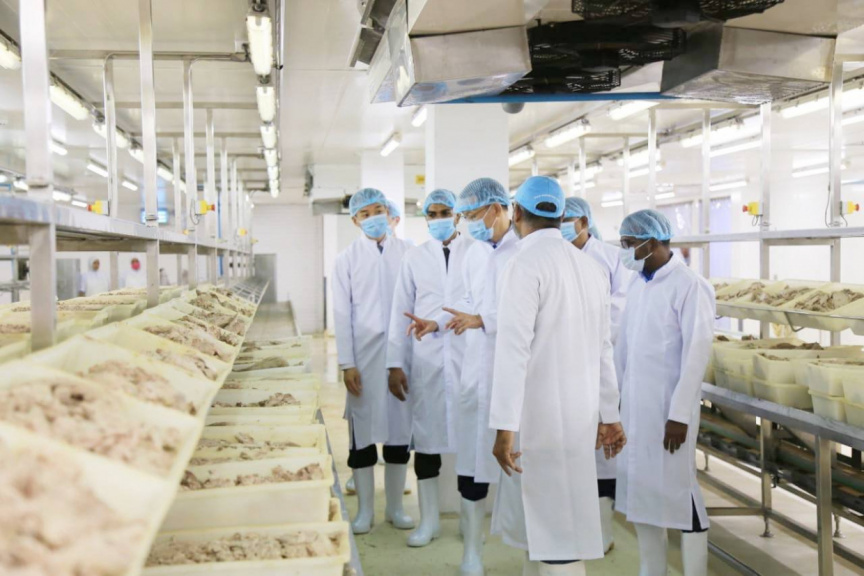
Ensis canning factory: The company says it is also in talks with foreign companies to sell or operate canary (Photo/Ensis)
Ensis has addressed former President Abdulla Yameen Abdul Gayoom's allegation that the Maldives Industrial Fisheries Company (MIFCO) acquisition of the Ensis cannery in Hulhumale was a deal structured to benefit specific individuals.
Ensis's USD 25 million cannery, which commenced operations in 2009, ceased production for 18 months in 2023 following President Mohamed Solih's decision to increase the fish purchase price to MVR 25 during the second round of presidential elections.
On August 9, MIFCO announced discussions regarding the acquisition of the facility.
At a rally held on Sunday evening by his political party, the People’s National Front (PNF), Yameen criticized the prospective acquisition, stating that the Ensis property was valued beyond the private sector's affordability at USD 10 million. He questioned MIFCO's capacity to acquire it, emphasizing the company's own financial difficulties and substantial debt.
He further accused the government of intending to purchase Ensis for USD 35 million and subsequently illicitly distributing the funds, implicating Minister Zameer as the primary architect of this plan. Yameen claimed that sources close to Zameer, including senior finance officials, indicated that Zameer would depart for Dubai after the deal's conclusion, as he no longer wished to remain in the country.

Following Yameen’s allegations, MDP's South Hulhumale' MP Dr. Ahmed Shamheed remarked during Monday’s parliamentary session that a comprehensive audit of MIFCO's finances should be conducted, and an assessment of its essentiality to the state should also be performed. He stressed the importance of taking Yameen's allegations seriously.
In response to these allegations, Ensis issued a statement on Monday, asserting that when the canning factory was compelled to cease operations after the government repeatedly increased the purchase price of fish, it was a robust business with international certification, having undergone audits and exported products to various foreign markets.
Ensis noted that when the factory closed, it employed over 400 individuals, including 200 local women engaged in fish cleaning.
The company stated that the Ensis cannery had been selling domestic fish products in supermarkets across Europe and the US under long-term contracts, and that the valuation of such factories would encompass the factory's land, machinery, human resources, and supply contracts.
Ensis is seeking to sell the factory or transfer its operation to a third party to mitigate the losses incurred due to the forced closure of the canning factory. Consequently, the company is engaged in discussions with MIFCO as well as companies in China and Saudi Arabia.
Meanwhile, Ensis noted that discussions are underway between the two companies to bring Ensis’s canning factory under MIFCO’s control as part of efforts to enhance MIFCO’s productivity and value-added output.
The statement from Ensis described the company as a 23-year-old proud Maldivian entity that has made significant investments in the development of the Maldives’ fisheries industry.
Such a valuable investment was made with a determination to conduct business competitively within an open fishing industry. However, the company stated that Ensis will undertake all necessary work and discussions to secure the company's future in an environment with controlled fish prices.
"Therefore, Ensis regrets that some parties are disseminating misleading information about this matter and the factory's valuation. We urge all not to spread information that could damage the reputation of this company,” Ensis stated.
The Ensis cannery, which possessed a daily processing capacity of 25 tonnes of fish, was constructed with funding from the German Development Bank. Although fish processing at the cannery is currently suspended, Ensis continues to export fish.